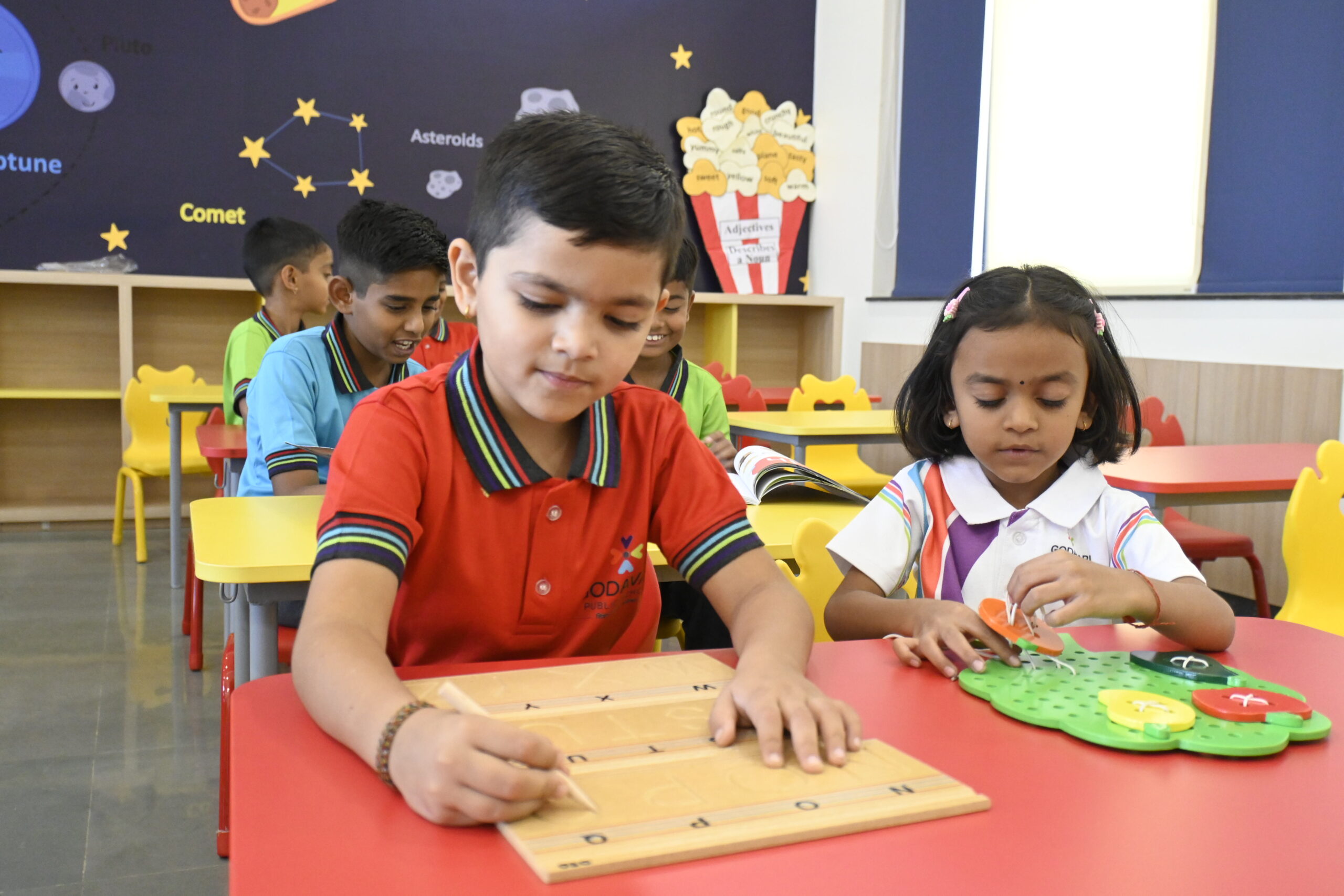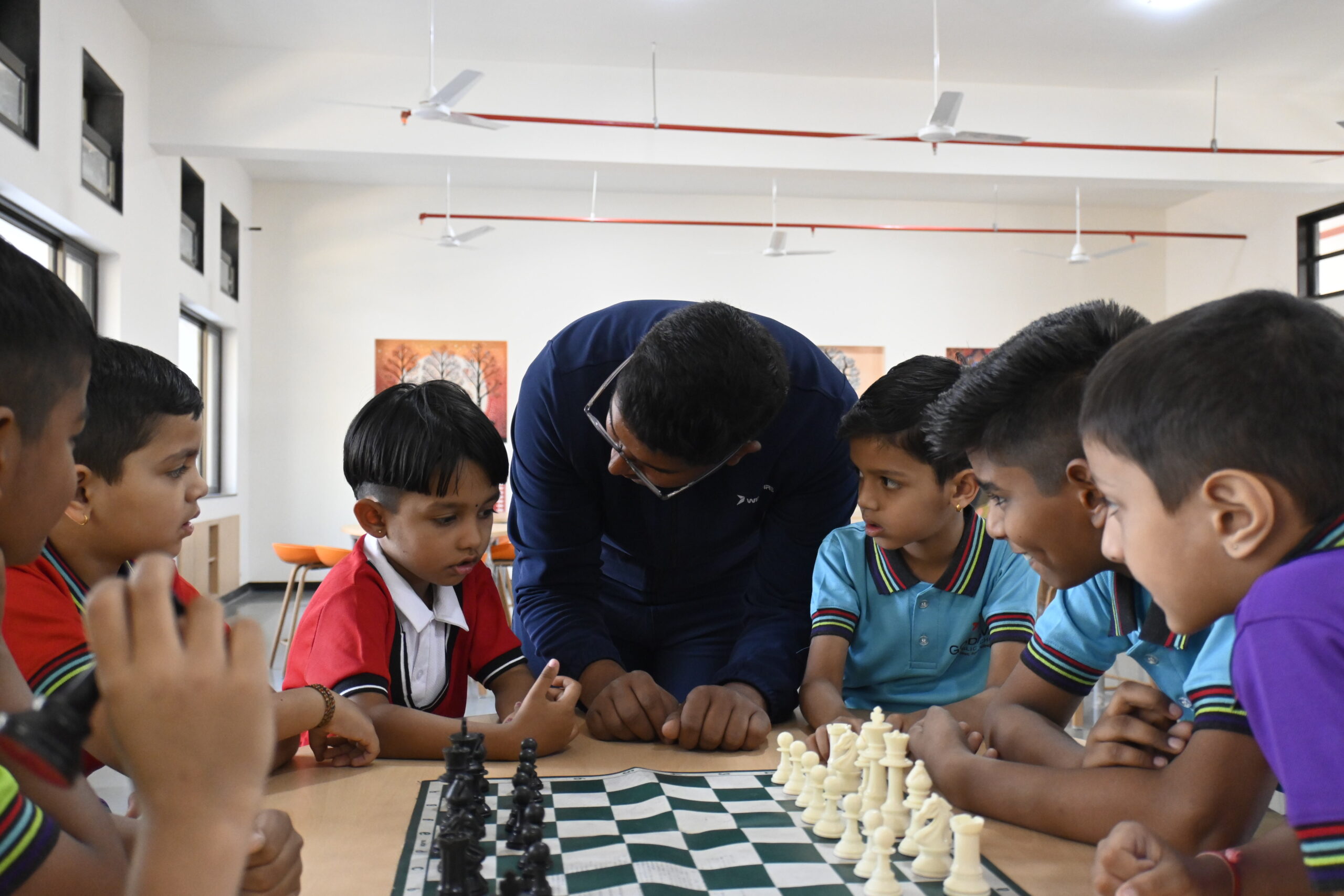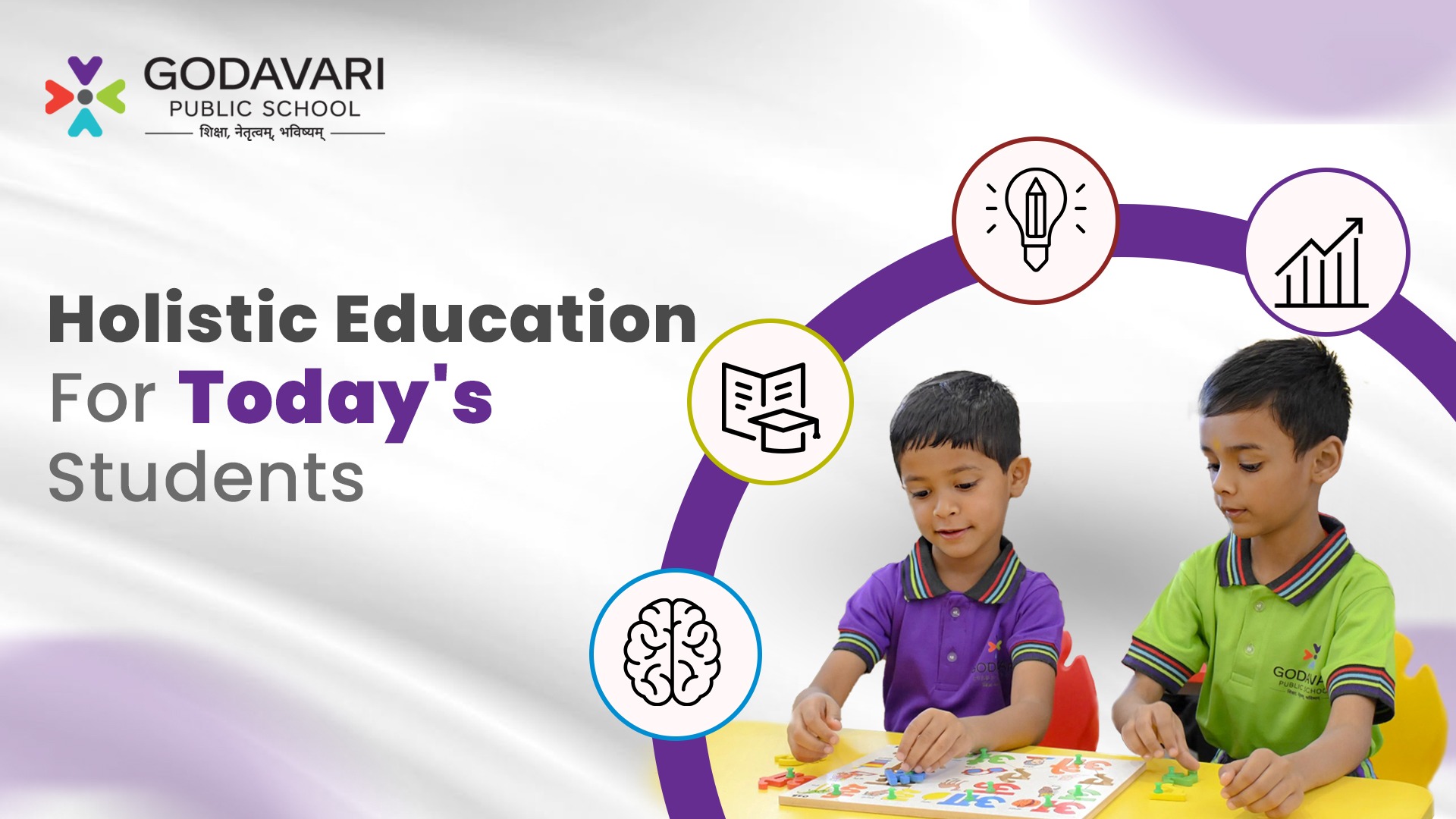Introduction
Table of Contents
Today’s education, we see, is more than just learning from books; it’s about equipping students with skills that go beyond academics.
At Godavari Public School, we align with progressive education. We focus on a holistic approach to learning, and we are dedicated to nurturing every aspect of a child’s growth. We help our students develop essential holistic skills and aim to nurture well-rounded individuals who are ready to tackle life’s challenges.
In this blog, we will understand what exactly holistic education is, why it is important for today’s students, and how we prepare them with these crucial skills.
“Holistic education forms the unshakeable base from which a fulfilling life grows.”
What is Holistic Education?
Holistic education is experiential learning. This type of learning teaches students through experience, and it emphasizes real-world applications. Furthermore, holistic education fosters a child’s overall development, such as physical, emotional, intellectual, and social.
Why It’s Important for Today’s Students
In today’s world, where there is a demand for innovators and leaders, holistic education plays a vital role. Holistic skills like problem-solving, creativity, collaboration, leadership, adaptability, and more are important for today’s students as they prepare them for this ever-evolving world.

At Godavari Public School, we, along with our passionate faculty, are committed to nurturing every student through a holistic approach to learning.
We develop these holistic skills through the following:
✅ We prepare them for life
> We organize problem-solving workshops. This workshop is designed to nurture skills like “critical thinking” and “adaptability”.
> We engage them in key activities like STEM and innovation projects. This prepares them for the “real-world challenges” we see today.
✅ We nurture emotional strength
> We promote self-awareness in our students through our SEL module (social-emotional learning) and also help them build both “empathy and resilience.”
> Our peer interaction programs support students’ emotional well-being as well as their interpersonal growth.
✅ Our learning beyond the classroom
> Beyond the classroom, we encourage our students to learn from real-world applications, such as field trips and community engagement programs.
>Through creative learning, such as art workshops, environmental projects, and science experiments, we embrace hands-on exploration.
✅ Our Thoughtful Academic Calendar
> Our academic calendar is meticulously designed to balance everything from annual cultural events to sports competitions and talent showcases, which nurtures our students’ unique athletic skills and creativity.
> For every student’s holistic development, we provide a mix of weekly activity classes and programs, such as leadership development.

✅ We Encourage Leadership and Teamwork
> We focus on developing students’ vital skills, such as collaboration and leadership, through our group projects and inter-school competitions.
> We build confidence and foster innovation in every student through our team-building activities and brainstorming sessions.
At our school, our holistic curriculum ensures that each and every student excels in all areas of learning: academically, emotionally, and socially.
As a progressive CBSE school with a global curriculum, we prepare and equip today’s students for a bright and innovative future.
How Holistic Education Benefits Your Child
| Benefits | What It Means for Your Child |
| It improves their academic performance | They comprehend the concept of any subject effectively through experience-based learning, as well as skills like problem-solving and creativity. |
| They Build Confidence and Independence | Your child learns to develop their confidence to face challenges and independence to grow through great guidance and leadership programs. |
| They foster stronger social skills | Social-emotional learning (SEL) fosters empathy and effective communication, preparing your child to build meaningful relationships. |
| Future-Ready Abilities | Activities that develop adaptability, critical thinking, and innovative problem-solving equip your child for success in higher education and beyond. |
| Respect and Responsibility | With cultural events and community service, your child grows into a compassionate, ethical individual with a sense of responsibility towards society. |
Conclusion
As a result, holistic education is more than just teaching and learning; it’s a crucial component for today’s students, as we have seen in this valuable guide.
At Godavari Public School, we follow this holistic approach and are committed to developing well-rounded individuals ready for the future. Our balanced curriculum and values-driven programs are designed to nurture every aspect of a child’s development. This will lead to building their confidence and succeeding not only in academics but also in life.
FAQs
Que. 1: What is the difference between holistic education and traditional education?
Ans: Holistic education focuses on the overall development of students. It nurtures their intellectual, emotional, social, and physical growth, while traditional education prioritises academic achievement and standardized testing.
Que. 2: What are some effective holistic teaching methods?
Ans: Holistic education focuses on the overall development of students. It nurtures their intellectual, emotional, social, and physical growth, while traditional education prioritises academic achievement and standardized testing.
Que. 3: What are examples of holistic education activities?
Ans: Examples include group projects, mindfulness sessions, community service, art and drama workshops, nature-based learning, and leadership training programs.
Que. 4: How does holistic education contribute to character building in schools?
Ans: Holistic education fosters traits like empathy, resilience, teamwork, and integrity through values-based learning, social-emotional development, and community engagement activities.
Que. 5: Why is physical education important in holistic education?
Ans: Physical education is vital for holistic development as it promotes physical health, teamwork, discipline, and mental well-being, ensuring a balanced lifestyle for students.
Que. 6: What are some examples of holistic education in practice?
Ans: In our school, we integrate experiential learning, SEL, project-based curricula, and activities like yoga, sports, and cultural programs that exemplify holistic education in action.
Que. 7: What are the best practices in holistic education?
Ans: Best practices include maintaining a balance between academics and extracurriculars, fostering critical thinking, encouraging hands-on learning, and creating a supportive learning environment.
Que. 8: How can holistic education prepare students for the future?
Ans: By developing adaptability, problem-solving, communication, and leadership skills, holistic education we provide equips students to thrive in both personal and professional spheres.
Que. 9: What role does social-emotional learning (SEL) play in holistic education?
Ans: SEL helps students manage emotions, build empathy, and enhance interpersonal skills, making it a crucial component of holistic education.
Que. 10: Why should parents choose a school that follows a holistic approach?
Ans: A holistic approach ensures your child develops academically, emotionally, and socially. At Godavari Public School, we combine experiential learning, balanced academics, and values-driven programs to nurture well-rounded individuals ready to face life’s challenges confidently.



